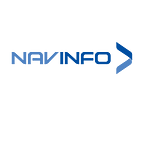NavInfo Europe AI Research Team to present new findings at the CVPR 2021 Workshops
Recently, two research papers from NavInfo Europe’s AI research team have been accepted at the 2021 Conference on Computer Vision and Pattern Recognition (CVPR) workshops and will be presented virtually next week. The CVPR Conference, sponsored by the IEEE Computer Society, is recognized as one of the most prestigious annual computer vision events. Every year, it coordinates several workshops that focus on specific topics and conducts in-depth discussions of comprehensive technical, application, and community issues.
The paper titled “Distill on the Go: Online Knowledge Distillation in Self-Supervised Learning” has been accepted by the workshop “Learning from Limited and Imperfect Data (L2ID)” and is one of the selected papers for an oral presentation during the workshop. The workshop attempts to bring together researchers to discuss emerging new technologies related to visual learning with limited or imperfectly labeled data. In order to address challenging pattern recognition tasks, there have been many efforts in weakly supervised and self-supervised learning to improve the robustness of models. Distill-on-the-Go (DoGo), a new self-supervised learning paradigm proposed in our paper, uses single-stage online knowledge distillation to improve the representation quality of the smaller models. Our method shows significant performance gain in presence of noisy and limited labels, and in generalization to out-of-distribution data. Watch our video for a detailed explanation of the paper.
Our second research paper, titled “Perceptual Loss for Robust Unsupervised Homography Estimation” has also been accepted for an oral presentation by the workshop “Image Matching: Local Features & Beyond”. This workshop aims to encourage new technologies for image matching that deviate from and advance traditional formulations, with a focus on large-scale, wide baseline matching for 3D reconstruction or pose estimation. In this paper, we proposed bidirectional implicit Homography Estimation (biHomE) loss for unsupervised homography estimation. The results show that biHomE achieves state-of-the-art performance on synthetic COCO datasets, which is also comparable or better compared to supervised approaches. Furthermore, compared to the other methods, this new approach is more robust to illumination and/or larger viewpoint changes. Watch our video for a detailed explanation of the paper.
About NavInfo Europe AI Research Lab
Our AI Research Lab is an innovation center with a diverse, energetic team of researchers with extensive expertise in machine learning, computer vision, robust AI, and causality. Our strong grip over a broad range of applications enables us to identify AI use cases in various industries and deploy AI technologies for smarter and reliable solutions.
